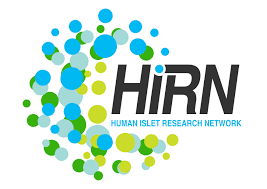New Publication from the dkNET PIs, the RRID team, and the Antibody Registry team: The Antibody Registry: ten years of registering antibodies
- 03:53pm November 17, 2022
- Ko-Wei Lin
Congratulations to dkNET PIs Drs. Maryann Martone and Jeffrey Grethe, Resource Identification Initiative lead Dr. Anita Bandrowski, and the Antibody Registry team on publishing a new paper "The Antibody Registry: ten years of registering antibodies" in Nucleic Acids Research today!
The Antibody Registry is one of the data sources of dkNET's Resource Reports - Antibodies!
What is Antibody Registry?
"The Antibody Registry is a public, open database that enables citation of antibodies by providing a persistent record for any antibody-based reagent used in a publication. The registry is the authority for antibody Research Resource Identifiers, or RRIDs, which are requested or required by hundreds of journals seeking to improve the citation of these key resources." (Bandrowski A et al.,2022)
Check out the paper to learn more about the Antibody Registry! Here is the information from Nucleic Acids Research:
"The Antibody Registry: ten years of registering antibodies
Published:
12 November 2022
Abstract
Antibodies are ubiquitous key biological research resources yet are tricky to use as they are prone to performance issues and represent a major source of variability across studies. Understanding what antibody was used in a published study is therefore necessary to repeat and/or interpret a given study. However, antibody reagents are still frequently not cited with sufficient detail to determine which antibody was used in experiments. The Antibody Registry is a public, open database that enables citation of antibodies by providing a persistent record for any antibody-based reagent used in a publication. The registry is the authority for antibody Research Resource Identifiers, or RRIDs, which are requested or required by hundreds of journals seeking to improve the citation of these key resources. The registry is the most comprehensive listing of persistently identified antibody reagents used in the scientific literature. Data contributors span individual authors who use antibodies to antibody companies, which provide their entire catalogs including discontinued items. Unlike many commercial antibody listing sites which tend to remove reagents no longer sold, registry records persist, providing an interface between a fast-moving commercial marketplace and the static scientific literature. The Antibody Registry (RRID:SCR_006397)
https://antibodyregistry.org."
Source and more information:
Anita Bandrowski, Mason Pairish, Peter Eckmann, Jeffrey Grethe, Maryann E Martone, The Antibody Registry: ten years of registering antibodies, Nucleic Acids Research, 2022;, gkac927, https://doi.org/10.1093/nar/gkac927





